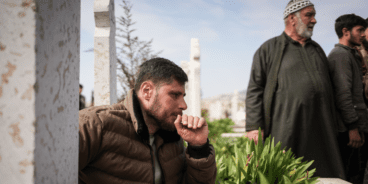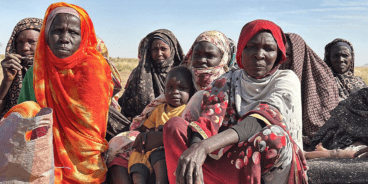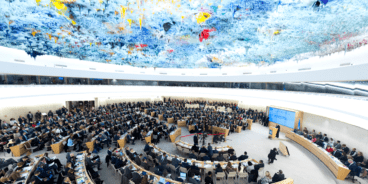

Statement on the International Day of UN Peacekeepers, 2018
On this International Day of United Nations Peacekeepers, the Global Centre for the Responsibility to Protect pays tribute to peacekeepers deployed around the world and recognizes the sacrifice of those who have lost their lives in the service of peace and the protection of civilians.
We also recognize that UN peacekeepers are increasingly called upon to uphold the international community’s Responsibility to Protect civilians from genocide, war crimes, ethnic cleansing and crimes against humanity. The UN currently deploys more than 100,000 military, police and civilian personnel across fourteen peacekeeping missions on four continents. Eight current UN missions – incorporating more than 95 percent of all UN peacekeepers – have a Protection of Civilians mandate. UN missions in the Central African Republic, Democratic Republic of the Congo, South Sudan, Sudan and Mali also have mandates that specifically reference the state’s primary responsibility to protect its population from mass atrocity crimes.
The theme of this year’s commemoration, “70 Years of Service and Sacrifice,” acknowledges the more than one million men and women that have served under the UN flag in 71 Peacekeeping Operations since 1948. Despite tragic failures and shortcomings, throughout those 70 years UN peacekeepers have contributed to protecting vulnerable civilians from violence and mass atrocity crimes, and saved countless lives.
Tragically, 3,733 peacekeeping personnel have lost their own lives while serving the UN. In 2017 alone 134 peacekeepers were killed while on active duty, including 61 killed in malicious acts: 24 in Mali (MINUSMA), 15 in Central African Republic (MINUSCA) and 21 in the Democratic Republic of Congo (MONUSCO). This marks the highest number of deaths due to malicious acts since 1994. Attacks on UN peacekeepers may constitute war crimes and those who incite or perpetrate these attacks must be held accountable.
During 2017 the UN Secretary-General commissioned an investigation into the increasing number of peacekeepers killed in the field. Authored by Lt. Gen. Carlos Alberto dos Santos Cruz and others, the report notes that one reason an increasing number of peacekeepers are being killed in malicious acts is due to the general erosion of respect for International Humanitarian Law. Increasing threats from non-state armed groups also compound the challenges that peacekeepers face while protecting civilians.
In these times of increased global insecurity – with over 65 million people displaced by conflict, atrocities and persecution – the international community must strengthen its commitment to UN peacekeeping. Dr. Simon Adams, Executive Director of the Global Centre for the Responsibility to Protect, noted that, “today we acknowledge that in too many parts of the world, the presence of a blue helmet can still mean the difference between life and death for vulnerable civilians. Every day UN Peacekeepers uphold the international community’s responsibility to protect through both conflict prevention and civilian protection. The world is a safer place because of their efforts.”
Related Publications


Atrocity Alert No. 427: Sudan, Democratic Republic of the Congo and Afghanistan
